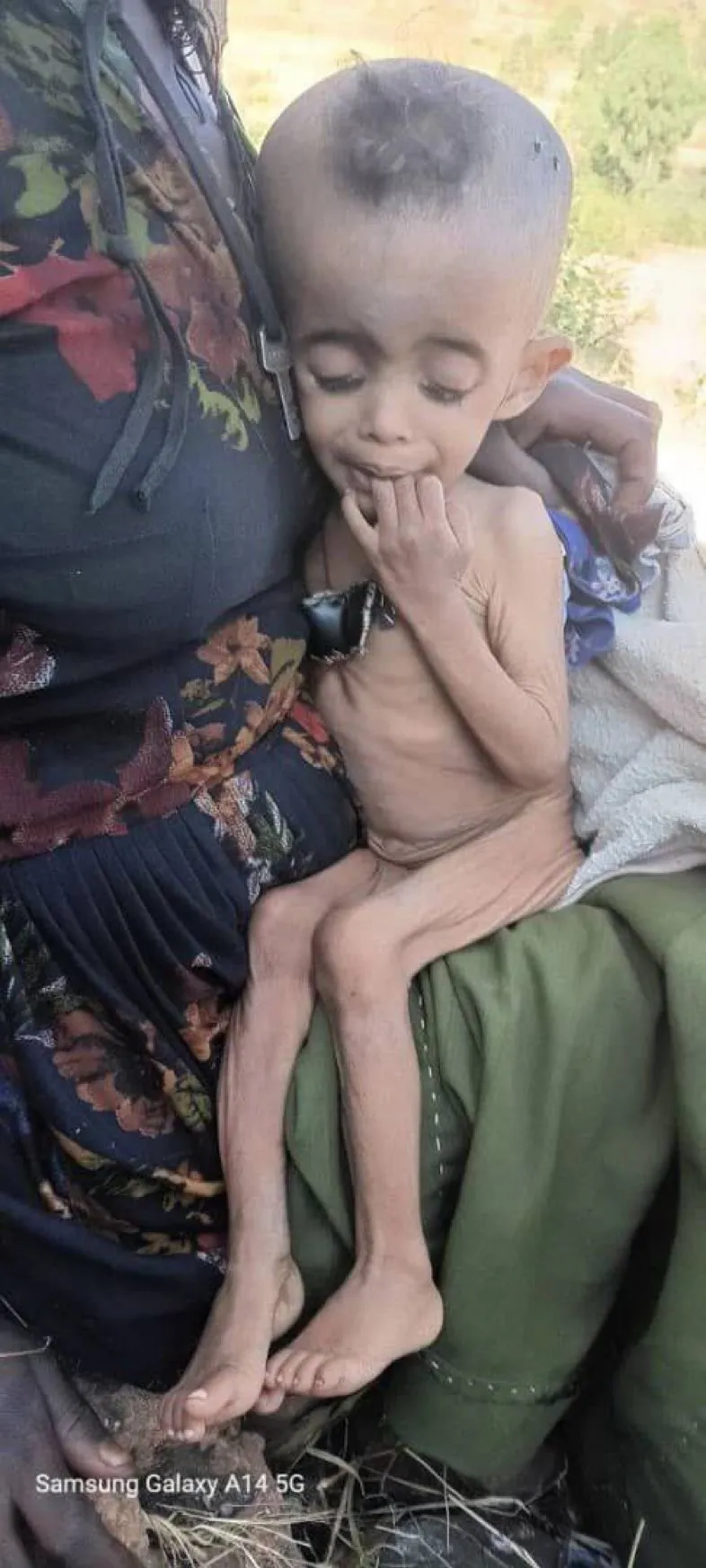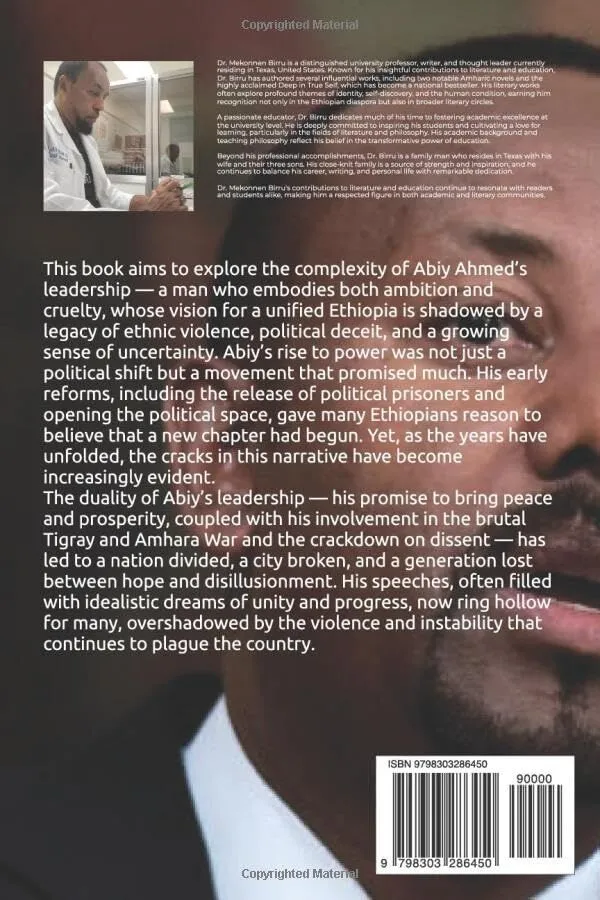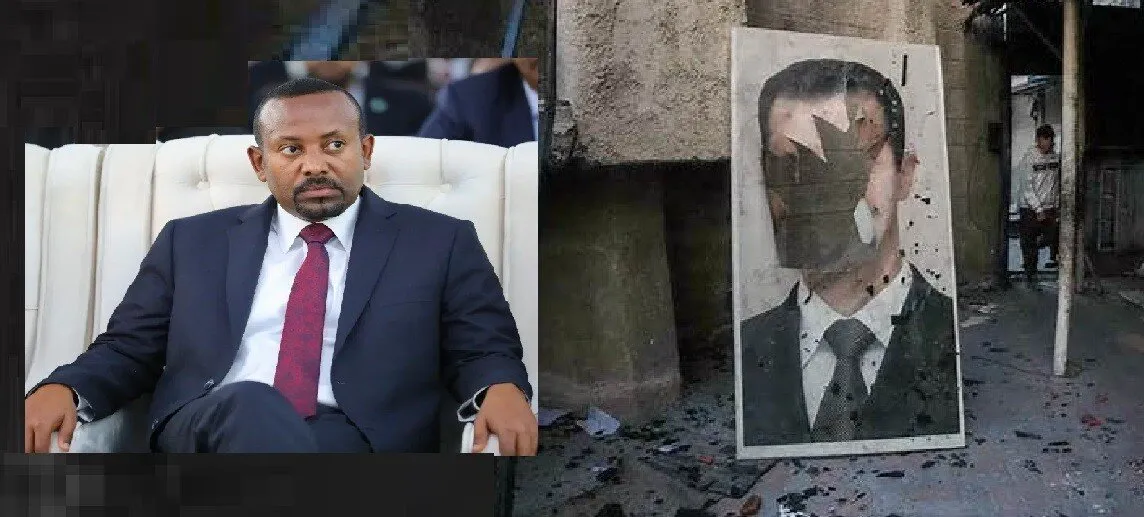“Safety and Protection of the Humanitarian Agencies and Staff: A Vital Humanitarian Concern”
By A Yakume
In Depth Africa | October 4, 2012
1. Humanitarian Crisis in the Ogaden Region
Somali region (Ogaden) is Ethiopia’s ‘own Darfur, where government runs war and organized human genocide, and blocks food aid delivery and trade, humanitarian access in the region. Women, children and older people are the most vulnerable groups to suffer abuse and violence and misuse of humanitarian aid in these regions. Ogaden humanitarian crisis is the worst one in Africa and Middle East.
Ethiopian government blocks humanitarian food aid and operations, diverts and distort food aid to feed military forces and militias in the Somali region (Ogaden). Because of the ongoing conflict, military operations, humanitarian crisis and human abuses government targets humanitarian agencies (UN and NGOs) and their staff. Humanitarian agencies and media have no access to operate in the Ogaden region. Ethiopia’s donors and UN are aware of these problems, but have done little to address the problems or tackle their own role in underwriting government repression.
In August 2012, the federal Disaster Risk Management and Food Security Sector (DRMFSS) confirmed with 3.7 million people who need humanitarian assistance between August-December 2012. 41% of those in need of assistance are in Somali State (Ogaden). Humanitarian Requirements Document (HRD) confirmed 1, 539,279 people (30% of the population) in the region who lack food, water and health, and other basic services.
Early Warning reports from Somali Regional Disaster Prevention and Preparedness Bureau (DPPB) have mapped 50 Woredas / Districts (75 per cent of the Woredas of the region) for water trucking between July and mid-October 2012. Somali Regional State Multi-agency Gu 2012 Seasonal Assessment Report (June 1 – 25, 2012) confirmed closure of 78 schools (31 formal schools and 47 Alternative Basic Education centres for 914 students of which 33.5% are female) in Wardher, Afder, Gode, Liban and Degahbour zones. Livestock body condition in Shinile has gradually deteriorated and cattle and shoats were emaciated, while the malnutrition situation (high malnutrition cases, increased morbidity and disease outbreaks) is very critical.
2. Collective Punishment
Because of the large military presence and operations, there is movement restriction of the pastoral community from place to another. The availability of stable food is poor due to lack of crop production and cross border commercial movement restrictions by federal customs authority.
Relief food is only source of income for the level government officials and militias at local level. WFP relief food goes through the government channels. The food is delivered where there are militia presences only. NGOs are not allowed to monitor humanitarian situation and operations and share with about these incidents, otherwise the government will close these organizations and arrests staff members. Government accuses humanitarian workers that, they support rebels and opposition groups, and share with UN and donors information about humanitarian situation of the country.
Government punished local communities by accusing them that, they support rebel and opposition groups! Foreign missions and media, humanitarian agencies and workers are not allowed to travel to the region and visit drought and conflict affected areas and monitor the situation on the ground. Poor humanitarian management with serious violations and detention of the aid workers and absence of rule of law will not change the humanitarian situation in the region.
3. War on Humanitarian Agencies and Staff
Civilians, journalists and humanitarian workers were arrested, abducted and kidnap, tortured and killed by government forces and other groups in the region. Federal government suspends flights to the region for security and other reasons. There are few humanitarian agencies, but with restriction or limitation of their operations and staff movement.
Local humanitarian staff are most vulnerable for detentions, harassments and displacement by the government. Government believes that, humanitarian staff has access to get information on what’s going on the ground and share these with the external community, and support rebels and opposition groups. An aid worker who concealed his name for fear of repercussions had recently told the Christian Science Monitor that, “if anybody were to push their agenda beyond a limit considered acceptable by Ethiopia’s notoriously strong and rigid government, then they would risk being expelled from the country.
MSF’s report “Ethiopia: A Fool’s Game in Ogaden”: The team of the Dutch section was put under house arrest in Wardher after one of its lorries refused to stop at an army roadblock, and several national staff members were accused of spying for the ONLF. With no explanation, an MSF-Switzerland field team was also ordered to shut down its exploratory mission and forbidden to leave the hotel. Before the mission was suspended, the team had observed that the people it had encountered were victims of violence and suffering from shortages of water, food and medical care due to the restrictions on movement caused by the conflict
In 2009, after visit of UN Under Secretary General for Humanitarian Affairs and Emergency Relief Coordinator in Ogaden, three UN staff members (i.e. UNICEF Representative in Kabridaha-, UNOCHA Representative in Somali region, and UNOCHA/ Pastoralist Communication Initiative (PCI) Programme Officer) were harassed and deported from the country without reason and trail. Journalists from Sweden, The New York Times, The Telegraph, VOA and others were detained after trying to investigate the situation in the country, as well as Ogaden Region.
Many UN and humanitarian staff were arrested and deported by the government. Two UNWFP staff members, who are the heads of the UN Field Security and Safety Officers in the Ogaden region (Yusuf Mohammed and Abdirahman Sheikh Hassan), have been arrested by the Ethiopian government. UN Field Security and Safety Assistant Yusuf Mohammed is in a remote regional jail without charges – since December 2010. Human rights activists say Ethiopia may use Mr. Mohammed as a bargaining chip in gaining custody of his brother, wanted for bankrolling a rebel group from Denmark. A colleague of Yusuf’s in the UN Department of Safety and Security, Abdirahman, is being prosecuted for links with the same designated terrorist group, the Ogaden National Liberation Front. Mr. Abdirahman’s arrest in July 2011 came shortly after he negotiated the release of two abducted UN World Food Program workers with leaders of the ethnic-Somali insurgents. Two UNWFP staff members have been kidnapped from their homes and arrested by government who are currently in the government detention centers.
In 2008, the government ordered ICRC, MSF – Belgium to leave Ogaden region and closed Ogaden Welfare Society (OWS), the Guardian (Somali-Ethiopian Relief and Rehabilitation Organisation), UNOCHA Pastoralist Communication Initiative (PCI), Hope for the Horn (HfH) and Al-Najah Relief and Development Organization (ARDO). In 2009, the government suspended the operations of 42 non-governmental organizations in the Southern region of the country accusing NGOs for reporting the human right abuses and war crimes which he has been accused for. August 2010, the government revoked the licenses of two foreign NGOs (Samaritan’s Purse and Mobility without Barrier Foundation-Ethiopia) and other two local NGOs (Ethiopian Women Lawyers Association and Ethiopian Human Rights Council). The staff of these organizations faced harassment, detention and deportation.
4. Safety and Security of the Humanitarian Agencies and Staff: A Vital Humanitarian Concern
In Ethiopia, food cannot get in and nobody can repot that. UN staff face regular harassment by government authorities. Government forces prevented UN staff from going beyond main centers to verify aid deliveries in the Ogaden. UN Under Secretary General for Humanitarian Affairs and Emergency Relief Coordinator (John Holmes) report to the UN Security Council noted “no one from the UN has been allowed to visit many of the remote rural areas where the conflict has been worst, admitting that the situation could be more serious in those areas”. WFP reports ranked Ethiopia as one of three of the top five countries with security incidents in 2010. There were many incidents of harassment and detention of staff by the authorities. The number of security incidents, involving WFP staff or assets in Ethiopia continued to increase (44 incidents in 2010), which 89% occurred in the Somali region.
Human Rights Watch documented a pattern of crackdowns on the private press, political and labor movements, and NGOs. In May 2012, The UN’s Staff Union urged UN Secretary-General (Ban Ki-moon) to exert all efforts to ensure the release of two UNWFP workers detained in Ethiopia. Amnesty International’s Joint letter to President Obama regarding his meeting with Ethiopian Prime Minister (Meles) in 18 May 2012 requested to release all persons arbitrarily detained, including opposition members and journalists, and ensure access throughout the country for humanitarian and human rights organizations and media.
The UN and any other member of the international community are caught between a rock and a hard place,” says an aid worker with years of experience in the Somali region, who asked not to be named. It is no secret that the Ethiopian government is punishing local people, blocks aid and trdae going to the Ogaden regions, and misuses aid. The UN’s mandate is to help the needy and vulnerable people specifically in the disaster and conflict places like the Ogaden. It’s clear this mandate has not been followed in the Ethiopia case. Instead, the aid and trade have been blocked and UN and humanitarian staff have been targeted and detained by the Ethiopian regime. As a result many of them haven arrested and others have forced to leave their organizations, and faced risks of losing their jobs. Humanitarian operation in Ethiopia should be reviewed and evaluated. The regime should be forced to allow free humanitarian operations and access to the humanitarian partners in the Ogaden and other parts of the country.
When UN and humanitarian staff is killed or arrested in the line of the duty, community as a whole is under threat. These problems not only silence the humanitarian actors but also indigenous people and international community. In this sense, access for humantrian actors, and also safety and security of their staff is vital human rights and humanitarian concern. The problem with the Ethiopian government is very clear, but there are questions about silence of the UN on Ethiopian government and its organized crimes on the detention of UN staff who have been on official mission and assignment. Is there two UN systems in this world; one system with Ethiopian government and other one with other countries; Eretria, Sudan, Zembabwe, etc? UN was never like this in its history, and there must reform on UN mandate and also safety and security, and protection of its staff and other humanitarian staff members in emergency situations.
It’s very shame to see big organization like UN who cannot talk about the rights and protection of its staff. This is the time for the UN to review its relations with the Ethiopian government and protect UN and humanitarian staff, and also the disaster affected pastoral and other people in this country. So, the UN secretary general must take actions on Ethiopian government and UN Resident Representative / UN Humanitarian Coordinator in Ethiopia, and ask them to apologize and release urgently the UN staff members and other humanitarian workers who are in the government detention centers.
Category : Article, Ethiopia and tagged Christian Science Monitor, Ethiopia, Indepth Africa Magazine, IndepthAfrica, IndepthAfrica Magazine, Ogaden, Ogaden National Liberation Front, ONLF, Politics of Ethiopia, Somali Region.
Source –In Depth Africa















